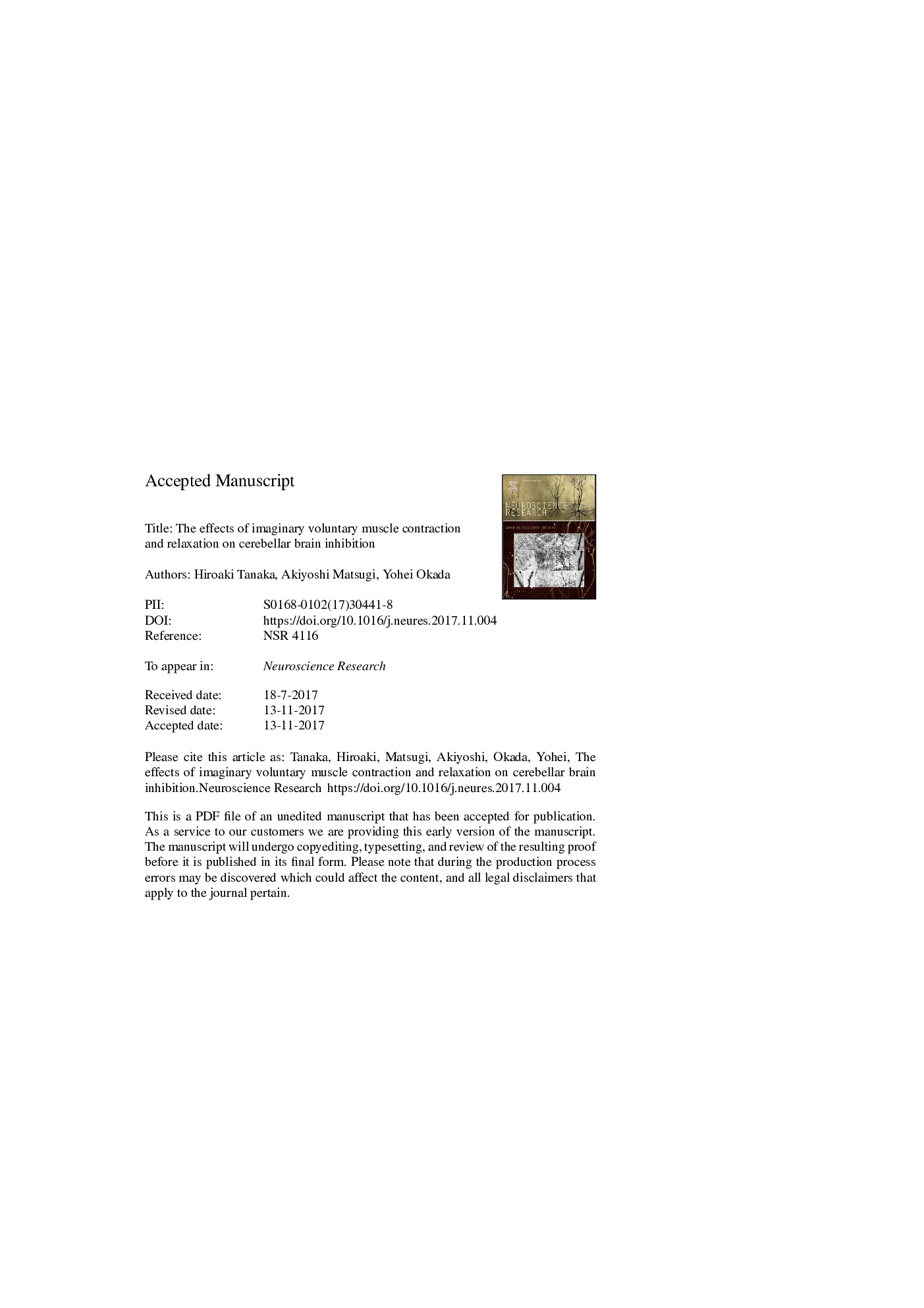| Article ID | Journal | Published Year | Pages | File Type |
|---|---|---|---|---|
| 8842044 | Neuroscience Research | 2018 | 30 Pages |
Abstract
The purpose of this study was to investigate cerebellar brain inhibition (CBI) of the contralateral primary motor cortex (M1) during imaginary muscle contraction (Contract-I) and relaxation (Relax-I) using transcranial magnetic stimulation (TMS). Twenty-nine healthy adults completed two experiments. Motor evoked potentials (MEPs) in the right first dorsal interosseous (FDI) muscle were induced by TMS over the left M1 and measured with or without TMS over the right cerebellum during Contract-I (first experiment) and Relax-I (second experiment) of the right FDI, and these were compared to the findings in a no-imagery (No-I) condition. MEPs during Contract-I were significantly higher than those during No-I, and MEPs during Relax-I were significantly lower than those during No-I. In contrast, CBI was significantly higher during Contract-I than during No-I, while there was no significant difference in CBI between Relax-I and No-I. These findings indicate that the cerebellum exerts facilitatory control over M1 excitability during imaginary muscle contraction but not during imaginary muscle relaxation.
Keywords
Related Topics
Life Sciences
Neuroscience
Neuroscience (General)
Authors
Hiroaki Tanaka, Akiyoshi Matsugi, Yohei Okada,
